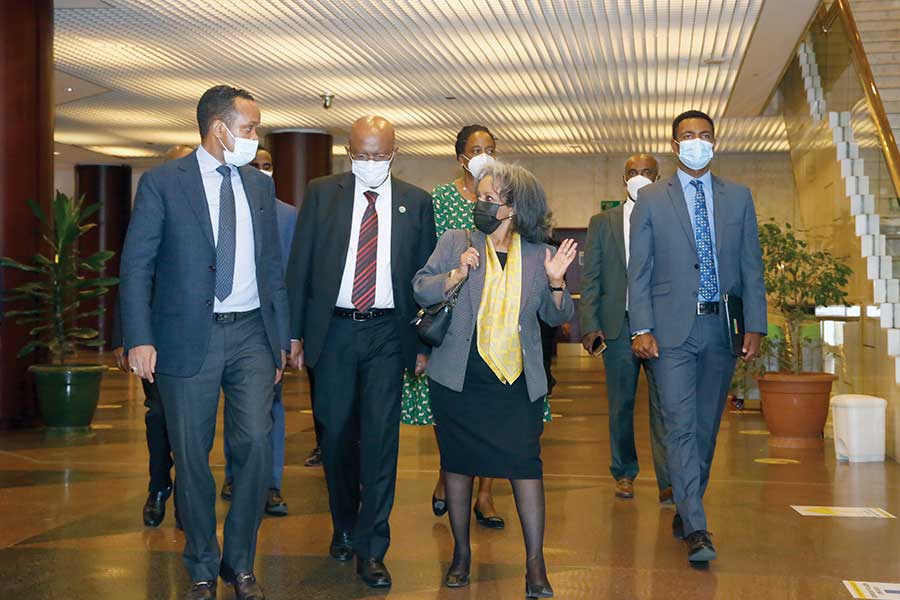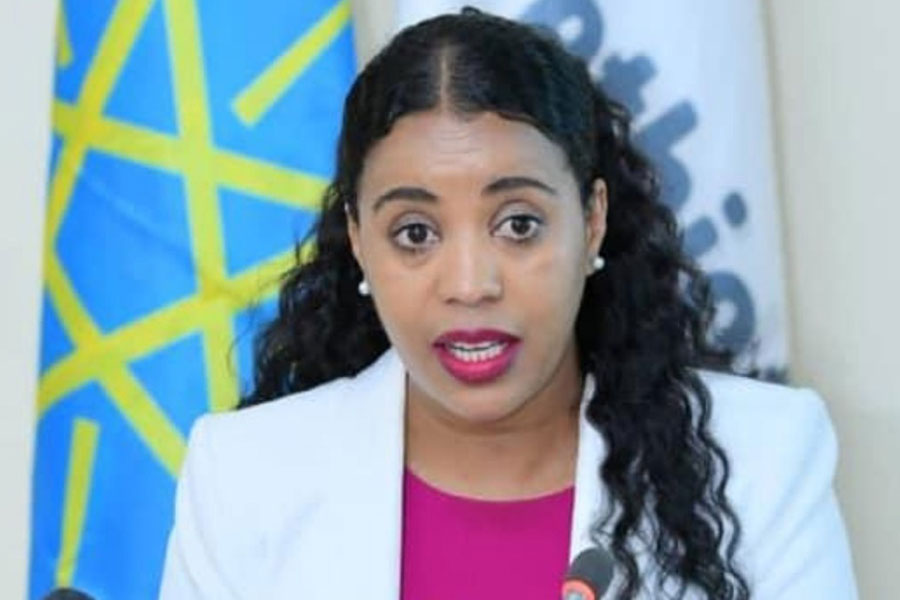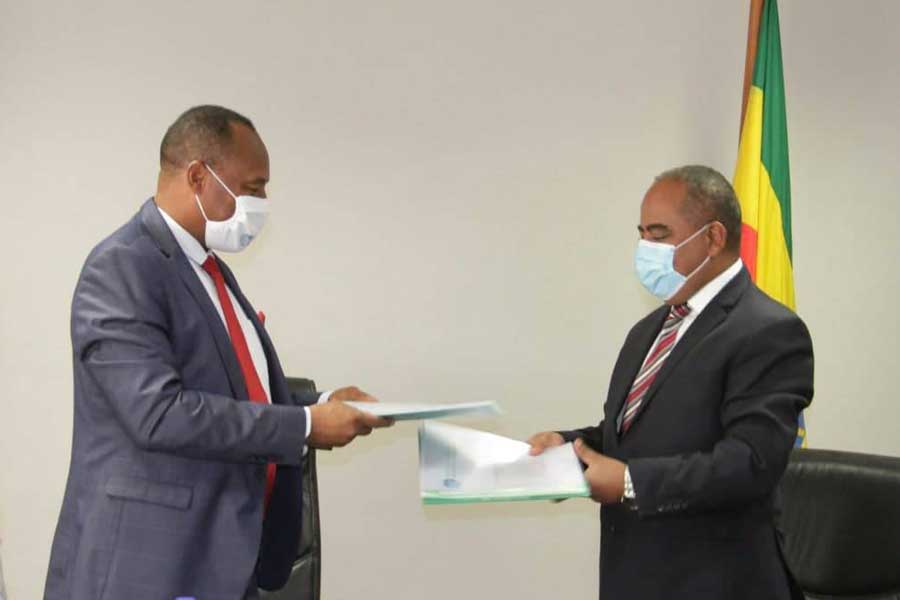
Radar | Dec 12,2020
Aug 16 , 2020
By Shewangezaw Seyoum
The National Planning & Development Commission, with ministries of respective sectors, recently introduced the 10-Year Perspective Development Plan. The plan aims to propel the country into becoming a “Beacon of African Prosperity.” Interestingly, it comes at a period where major uncertainties have opened at global, regional and national levels.
The new plan, if anything can be gathered from the discussions being held, seems to be mindful of the discontents of the previous decades’ economic development planning and experiences. In particular, the obsession with rapid gross domestic product (GDP) growth, driven by massive public spending, has been replaced by an emphasis for “quality based economic growth,” and private sector participation.
The Perspective Plan is also expected to reinforce and elaborates the Homegrown Economic Reform Agenda, which was general and too broad. It should provide direction on strategic issues and where large-scale investments are required to enhance the economy and deal with the softer issues that improve productivity. It should also provide competitiveness, moving from a conservative approach that is incremental in nature and insular in focus to a new path that is ambitious, articulates its priorities, and seeks new approaches to growth.
To attain these outcomes, Prime Minister Abiy Ahmed’s (PhD) administration has been identifying some key tools. They include investments in infrastructure, digitisation and innovation and human resources. Growing the infrastructure platform is expected to secure maximum benefits from infrastructure development. Likewise, digitisation is not only to play an enabling role but also serve as a productive industry in its own right, generating income and creating jobs.
Certain large-scale assumptions are fundamental to the Plan. The challenge is that there are cascades of uncertainties that can get in the way. We live in an uncertain and ever-changing world that is continually evolving in novel ways.
The starkest example of this is the COVD-19 pandemic, which is currently causing crises in many fronts and has disrupted the administration's “Homegrown” agenda at home. The unusual magnitude of these ongoing crises is raising significant concerns about the future of the economic outlook for the world.
A set of three possible scenarios had earlier been suggested: V-shaped (quick), U-shaped (slow) and L-shaped (no recovery before 2022) recoveries. We now know that V-shape recovery is unlikely and U-shaped scenario is the one presently considered the most probable. But this is dependent upon the avoidance of a second wave global outbreak of COVID-19.
Getting out of the recession and recovery may come at last. The exact date of this upward shift will, however, depend on a series of uncertain factors such as the speed of funding, preventive and therapeutic treatments, the effectiveness of public health and economic policy in addressing the causes of the present crisis, the speed of return of investor confidence, and the ability to prevent isolationist and protectionist tendencies.
For Ethiopia, it is not just COVD-19. There are also natural calamities such as the Desert Locust outbreak in parts of the country. Even this will conceivably, however, pass and does not constitute a severe shock to the economy by itself.
The same cannot be said about political uncertainty. Conflicts in parts of the country, and more recently violence after the death of Hachalu Hundessa, have resulted in the loss of lives and destruction of property. It was a reminder of the scale of the challenges that socio-political challenges can pose to the economic well-being of the country.
Countries with deep social cleavages and weak institutions tend to be poor at handling shocks. Such conflicts diminish the productivity with which a society's resources are utilised by delaying needed adjustments in fiscal policies and key relative prices (such as the real exchange rate or real wages) and by diverting activities away from the productive and entrepreneurial spheres.
How do we then decide what kind of path to pursue, or which industrial domain and where to compete when it is not clear what industries will exist in 10 or 15 years and the nature of competitive advantage sought? How do we plan our children’s education when we cannot know what sort of economy will exist by then?
In our quest to create a better future, we must be able to imagine it in the first place. Any action has an opportunity cost, not to mention risks. But they are to be far less than the long-range costs of comfortable inaction.
It does not mean we should care less about the known unknowns - things that we know we do not know. Anticipating and examining different scenarios, as well as developing alternative approaches and strategies, is of paramount importance in this regard. It can prepare us and help us understand the uncertainties that lie before us and what they might mean. It also helps us rehearse our responses to those possible futures. And it helps us spot them as they begin to unfold. Forewarned is forearmed.
PUBLISHED ON
Aug 16,2020 [ VOL
21 , NO
1059]


Radar | Dec 12,2020

Fortune News | Jan 30,2021

Verbatim | May 06,2023

Radar | Nov 16,2019

Viewpoints | Jun 07,2020

Radar | Jan 09,2021

Editorial | Nov 13,2021

Fortune News | Jan 23,2021

Viewpoints | Jun 14,2025

Sunday with Eden | Nov 12,2022

Photo Gallery | 174097 Views | May 06,2019

Photo Gallery | 164319 Views | Apr 26,2019

Photo Gallery | 154437 Views | Oct 06,2021

My Opinion | 136621 Views | Aug 14,2021
Editorial | Oct 11,2025

Dec 22 , 2024 . By TIZITA SHEWAFERAW
Charged with transforming colossal state-owned enterprises into modern and competitiv...

Aug 18 , 2024 . By AKSAH ITALO
Although predictable Yonas Zerihun's job in the ride-hailing service is not immune to...

Jul 28 , 2024 . By TIZITA SHEWAFERAW
Unhabitual, perhaps too many, Samuel Gebreyohannes, 38, used to occasionally enjoy a couple of beers at breakfast. However, he recently swit...

Jul 13 , 2024 . By AKSAH ITALO
Investors who rely on tractors, trucks, and field vehicles for commuting, transporting commodities, and f...

Oct 11 , 2025
Ladislas Farago, a roving Associated Press (AP) correspondent, arrived in Ethiopia in...

Oct 4 , 2025
Eyob Tekalegn (PhD) had been in the Governor's chair for only weeks when, on Septembe...

Sep 27 , 2025
Four years into an experiment with “shock therapy” in education, the national moo...

Sep 20 , 2025
Getachew Reda's return to the national stage was always going to stir attention. Once...

Oct 12 , 2025
Tomato prices in Addis Abeba have surged to unprecedented levels, with retail stands charging between 85 Br and 140 Br a kilo, nearly triple...

Oct 12 , 2025 . By BEZAWIT HULUAGER
A sweeping change in the vehicle licensing system has tilted the scales in favour of electric vehicle (EV...

Oct 12 , 2025 . By NAHOM AYELE
A simmering dispute between the legal profession and the federal government is nearing a breaking point,...

Oct 12 , 2025 . By NAHOM AYELE
A violent storm that ripped through the flower belt of Bishoftu (Debreziet), 45Km east of the capital, in...